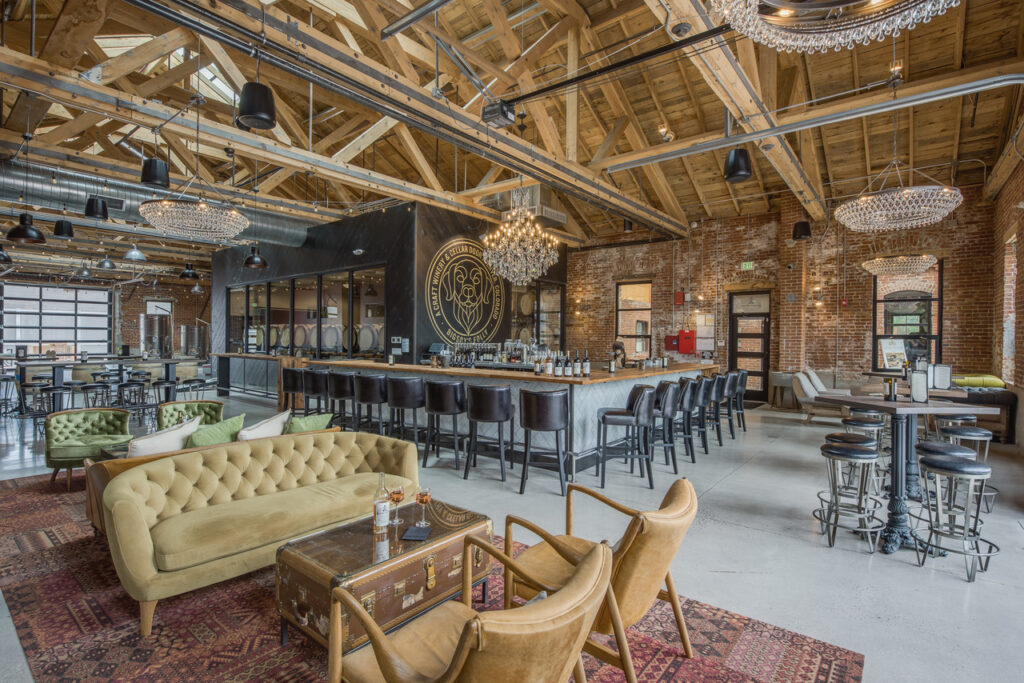To Cheers or Not to Cheers
Executive chef Kim Moyle was told the holiday season at the Brown Palace Hotel and Spa in downtown Denver can be “like a freight train.” This is the first winter she’s running the restaurants at the 129-year-old establishment, and she’s planning for the influx of revelers who have reserved dining rooms and tea tables to toast the season. And after last year, many are eager to celebrate 2020 and 2021.
But the holidays are weeks away, and there are still many unknowns. The highly contagious Delta variant continues to spread among communities and pose increased risk for large gatherings. While some customers are carrying on with plans, others are cancelling and many are waiting to see what happens. For restaurant operators, this means that everything’s a go until it’s not, which means thinking through contingency plans and trying to ensure enough staffing.
“It’s so hard to predict the future,” Moyle says. “I also strongly feel that you have to be prepared.” So Moyle is searching for staff. Like many others in the hospitality industry, the Brown Palace has faced staffing shortages, and it’s learned to reach out to temp agencies and culinary schools to fill the gaps. Moyle is also counting on hiring a few new employees through the J-1 or Exchange Visitor Visa program, and she’s found luck hiring for managerial positions. “It’s all about having a good team,” she adds. (Moyle is watching the J-1 program closely, as Delta may force some countries to close their borders once again. To offset that possibility, she is hiring more culinary interns.)
Meg Batizy, director of events and operating partner at the Lobby in Denver’s Ballpark neighborhood, has also found it easier to bridge her staffing gap by hiring kitchen and general managers. But for the holidays, she’s also begun reaching out to her on-call list to see who might be available to help during the winter months.
“We’re all looking into a crystal ball that we don’t have.“
Stephanie Bonin, Duo Restaurant
The Lobby runs as a daytime brunch restaurant and opens up its courtyard and two indoor spaces for evening events. While the venue hosts celebrations year-round, December is typically its busiest month. The Lobby saw holiday bookings increase during early August, but as Delta surged, the number of reservations slowed. By mid-September, at least four clients had cancelled and several companies said they would hold off on events until next year. “The feeling I get is that a lot of people got burned on their contracts last year,” Batizy says. “They had a holiday party space contracted that they couldn’t use because of COVID, so they lost the funds they had put down as deposits or even full payments.”
Batizy explains she always tries to reschedule events, but also makes sure to create clear contracts that protect both the Lobby and its guests, especially in the case of government mandates that prohibit indoor dining or require masking. Since the pandemic began, “the main thing I’ve personally learned is that contracts are everything,” she says. The Lobby now also requires that customers purchase their own event insurance. Batizy recommends guests talk to their homeowners or renters insurance providers to see if they offer a one-time event insurance option. As an alternative, customers can also reach out to online companies like WedSafe.com and PrivateEventInsurance.com.
Marla Yetka, co-founder and chief experience officer of Bigsby’s Folly Craft Winery in Denver, is worried that mandates could put a damper on holiday parties; she’s already seen a decrease in bookings due to concerns about Delta. The winery operates as both a restaurant and event space, but events bring in much-needed revenue.

Bigsby’s is fully staffed, partly because the business has done well and base pay starts at $24 an hour. “We don’t operate on regular margins,” Yetka says. However, if the winery hosts fewer events, Yetka says she’ll have to cut hours. “Usually, we’re fully booked out for corporate holiday parties,” she continues, with such large events planned a year to six months in advance. But as of mid-September, Bigsby’s was only 25 percent booked and three big parties have been cancelled.
Yetka is hoping for large last-minute bookings. Previously, a buyout would never happen within a one- or two-month period, but with so much planning currently up in the air, it’s possible. Until November 1, Yetka was reserving certain dates for parties of a hundred people or more, but if those days remain open, she’ll start releasing those time slots to smaller parties.
At Duo Restaurant in Denver’s Highland neighborhood, the holiday parties are smaller than those at Bigsby’s, but the events still add to an already busy time of year for the small farm-to-table restaurant. Typically, Duo hosts four to six private holiday parties during the season. And while owner Stephanie Bonin began receiving reservation inquiries in September, she was weighing how the events would affect her staff. On one hand, holiday parties can be “fun and exciting,” but on the other, they can “provide anxiety and chaos,” she says.
Because Duo is short-staffed, Bonin is cautious of burnout, which means “having to make the decision to potentially say no,” she says. “I’m letting people know that we’ll be doing a limited amount of parties.” But so much also depends on what customers want. “The one thing entrepreneurs are really good at is being flexible and figuring out how to come up with how to say yes,” Bonin adds. “It’s a delicate dance; you don’t want to say no to much-needed business. We’re all looking into a crystal ball that we don’t have.”
Talk to us! Email your experiences (and thoughts, opinions, and questions—anything, really) to askus@diningout.com.
